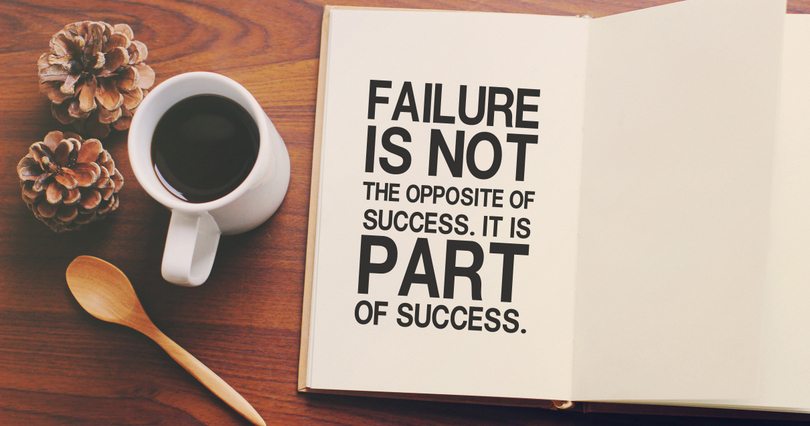
 Twenty years ago, Pearn Kandola – an Oxford-based business psychology firm – conducted a study in which they looked at the claims that companies made about the kind of people that they wanted to recruit. One thing they discovered was that managers tended to weed out the people who exhibited the very characteristics they said they wanted.
Twenty years ago, Pearn Kandola – an Oxford-based business psychology firm – conducted a study in which they looked at the claims that companies made about the kind of people that they wanted to recruit. One thing they discovered was that managers tended to weed out the people who exhibited the very characteristics they said they wanted.
In this case, the people they said they wanted were those who thought and acted like entrepreneurs, but when it came right down to it, those candidates were perceived as being too unlike them to take the risk.
And that’s really what it’s about: risk.
The same thing happens to organizations that say that they want to transform themselves. They will tell you all day long about what they want to occur, but they’re unwilling to change what they do so that it will happen. It’s simply too risky to change the status quo. Better the devil you know, and all that.
In his book, Seeing What Others Don’t by Gary Klein, the author says that organizations prevent insights from occurring by making it almost impossible for their employees to make mistakes. They put in place a multitude of controls, such that experimentation is reduced, and failure becomes almost non-existent.
Research
Anyone who has ever been involved with research of any description will tell you that it’s messy. They’ll explain that they had an idea that they felt needed to be explored, that they couldn’t shake it, that it’s all they thought about, and that try as they might to get on with the rest of their lives, they knew that unless and until they scratched that particular itch, they wouldn’t be able to put that idea to rest. It would take over their lives until they solved the problem.
You shouldn’t be surprised to learn that this is how the most insightful research is conducted. Those who do it are free to question anything and everything. They may have a limited budget, but no one tells them that they can’t ask the questions that are bothering them.
Some may be told eventually that they’ve spent enough time on something and that they need to move on with other work; but if the pull is strong enough, then even in those circumstances these people will risk their careers by coming into the lab during their free time to continue to pursue their interests.
Quite often, that’s the kind of dedication that’s required. People like this win Nobel prizes.
But here’s the thing, organizations want to have it both ways. They want there to be innovation, but they also want it to be achieved without anyone making mistakes. In other words, they want to transform their businesses perfectly the first time. Of course, it doesn’t take much thought to realize that it doesn’t work like that. Even if it did, the market around you would change so quickly that you’d soon be out of sync anyway.
More likely, you’ll find that in the vast majority of cases, success comes after a string of failures. In other words, you have to give your employees room to fail. If they can’t fail, then they can’t succeed either.
Thomas Edison
When asked about all of his experiments to create a practical incandescent light bulb, Thomas Edison had this to say: “I have not failed. I have just found 10,000 ways that will not work.”*
This is why you hear entrepreneurs talk about “failing fast.” They, too, know that you have to get the failures out of the way so that you can begin to experience the successes.
What would have happened if Edison worked for you?
Transformation Without Innovation
Experimentation implies that criticism is also acceptable. That’s probably one reason why so little innovation occurs in totalitarian societies. If you can’t challenge the person who is in charge or the policies that he / she makes, then you prevent people from looking for other ways of doing things. If you limit creative thinking, then you’re destined to do things the way you’ve always done them. That’s simply because you won’t know what else to do or will be too afraid to try.
Klein says that “The more successful our beliefs, the harder it is to give them up.” What he means is that it’s more challenging to believe that we need to do something different if what we’ve always done has worked in the past.
Perhaps you have felt this in your organization. Maybe you have thought that there was no reason to change the way you think.
If that’s your view, then you’re in trouble.
Klein says that, “If organizations truly want to foster innovation and increase discoveries, their best strategy is to cut back on the practices that interfere with insights.”
Did you get that?
If you want more innovation, if you want to transform your business, then you have to remove the obstacles that prevent people from experimenting. In other words, you have to give people room to fail.
Are you likely to lose some control over what’s going on? Absolutely. There are no guarantees. The exact outcome will be unpredictable. But it is anyway. Clinging to the status quo isn’t a safe option.
Training Wheels
How did you learn to ride a bicycle? Did you have training wheels? What were their purpose?
To keep you from falling over until you got the hang of how to balance yourself, right?
Why were the training wheels removed? Wasn’t it so you could do more? Wasn’t it because you didn’t need them?
What would you have thought if they had been left on?
When you control what people can do in your organization to the extent that they can’t change how they behave, then you also limit your ability to transform your business.
It’s like leaving the training wheels on your bike. If you never take them off, then you’ll never know if people can ride without them; and face it – there’s only so much cycling you can do with them still attached.
When was the last time you saw the winner of the Tour de France with them on?











